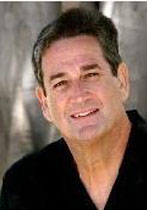By Rabbi Ben Kamin

SAN DIEGO –None of them who planned it—and it was not very well planned—were certain it would succeed. Nor was it some kind of new idea. A. Philip Randolph, the wiry, erudite, socialist equivalent of MLK one generation earlier, had actually conceived of mass march on the capital, one that would tether the issues of labor with the questions of human rights.
Randolph made the original effort to generate a mass citizens’ protest for jobs for blacks during the presidency of Franklin Delano Roosevelt. FDR oversaw a new national industrialization as the nation entered into the fray of World War II. Randolph was president of the Brotherhood of Sleeping Car Porters in 1941 and petitioned the president—who was after all the father of “The New Deal’—to support the proposed march.
Roosevelt did not want the march (as John F. Kennedy would not in 1963) but made a deal with Randolph in 1941: cancel the march in exchange for a presidential executive order upholding the basic rights of African Americans. Though this was essentially a paper decree, it was significant given that it was the sole such pronouncement from a sitting president since Lincoln’s Emancipation Proclamation in 1863.
Clarence Jones, who was King’s personal attorney and a drafter of the Dream preachment, recalls the manner in which the Kennedy administration—and the Washington police—anticipated the March on Washington. The White House opposed it and wished it wouldn’t happen for fear of violence and for the fretfulness of possibly being tacitly associated with such a large-scale Negro invasion of the capital. As for the district police, says Jones, “They approached it like an army approaches a battle.”
Ironically, every rehearsal, every planning session, every statement of March policy brimmed with declarations and affirmations of nonviolence, order, dignity, peacefulness, and civility. In fairness, such a demonstration, with so many people, against the canvas of national racial tensions and a number of high-profile altercations, riots, and murders, had never been planned before. And there were divisions and rivalries amongst the black agencies and their leaders that exacerbated the tension.
The record shows that 250,000 citizens came and left the District of Columbia and not a single incident occurred. With that hindsight, it is understandable that Clarence Jones has since lamented the government’s “bunker mentality” and that he has written sorrowfully about the troop deployments that occurred, the blanket canceling of all police leaves, the ban on liquor sales, the thousands of paratroopers lurking on stand-by, and the FBI’s swarming surveillance of all the many Hollywood celebrities who were on hand to lend their support and spirit, from Paul Newman to Shirley Winters to Marlon Brando to Joan Baez to Harry Belafonte.
King was the last to speak on that sweltering afternoon and he began deliberately and without much energy. Lena Horne is said to have yelled out to him, “Tell them about the Dream, Martin!” King, already a legend at 34 years of age, discarded his prepared speech and began his totally extemporized oration marked by the refrain, “I have a dream!”
After King’s stirring and rhythmical speech, after it sunk in, with the humidity, that the day had been extraordinarily positive and peaceful, after 250,000 people began to happily disperse, the president sent messages to King: come to the White House for a reception.
John and Robert Kennedy received the buoyant preacher, along with the leaders of the NAACP, and other Negro agencies that had effectively set aside their own differences and rivalries and little scorns and had pulled off an unheralded triumph.
Sandwiches were served, cool drinks poured, hand-shaking and back-slapping ensued, and the Kennedys congratulated themselves for being vigilant and maintaining the peace. For one halcyon afternoon that extended into a sublime dusk, the American government frolicked in interracial mirth and relief. That, too, was a dream.
*
Rabbi Kamin is a freelance writer based in San Diego. He may be contacted at ben.kamin@sdjewishworld.com